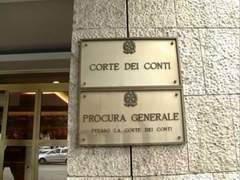
(Jamma) The account judgment for the management of the slots between 2004 and 2009 cannot be proceeded, and the deeds are referred to the Regional Prosecutor's Office "for any subsequent measures to be taken". This is what the Court of Auditors, Lazio Section, ordered in the ruling on the Cirsa case – the first to be published – similar pronouncements are also expected for the other concessionaires.
The story revolves around the creation of the entertainment machine network, which started in 2004 and was in fact completed only at the end of 2006. The accounting judges essentially ascertained the absence of exhaustive documentation. In fact, in 2007, having noted all the critical points in the start-up, and the impossibility of reconstructing all the flows of bets through the internal counters of the machines (calibrated to return 75% of the collection in winnings, over a cycle of 140 games), the Monopolies decided to remedy the situation by determining the tax levy on a lump sum basis. In the sentence, the Court recalled the technical consultancy requested from DigitPA in the parallel judgment on the tax damage for the delays in starting up the network. The expert witness shows that "from the moment of the provisional start-up of the telematic network, fixed in the month of October 2004 to the moment of the definitive running of the same fixed in the first half of the year 2006, all the equipment equipped with NOEs were gradually put into the network until to reach almost all (percentage of 92-96%) at the end of 2006″. For the Court, "it is an extremely long period of time which, in addition to having carried out an evident and clear violation of the agreement, has led to the gradual sending of accounting data that is not integral but in any case approximate and not certain and real". The sentence recalls the problems that characterized the start-up of the network - the scarce availability of telematic lines to make the connection between appliances and the control network, and the installation of machines with different ports - which "necessarily made it difficult to establish a valid and authentic contact between the licensee and the establishments where the gaming machines were located". The Monopolies, for their part, would have "should have included clauses suitable for preventing the effects of such critical issues in the assignment agreement, providing the concessionaires with more suitable investigative powers to access the manager's and operator's offices and correlatively acquiring powers of more incisive monitoring of the concessionaire's activities to verify in detail the management of the network". In the face of all these critical issues "it is unimaginable that the accounting data highlighted by the concessionaire and relating to the sums played can be said to be provided with that reliability such as to justify a judicial discharge, as well as to allow for the issuance of a possible sentence of the accounting agent". Moreover, even the verification activity proved to be deficient: the Aams "admitted to having carried out the checks rather than on the accounting data and on the methods of transmission of the same to the telematic network, on the management capacity of the concessionaire to perform the requested service to understand how to increase its efficiency”. Basically, "attention was focused on the possibility of increasing revenues, completely forgetting to check whether in the meantime all the stakes were actually transmitted". According to the Court, a situation has therefore arisen in which "the decision whether or not to show the device connected to the telematic network is left to the total discretion of the concessionaire, as well as when and whether to proceed with the communication of the actual data, in the total absence of checks in progress by the granting Administration which has not bothered in the least to acquire probative documentation to be shown to this Judge on the status of the checks carried out, nor to ask the concessionaire for supporting documentation capable of justifying recourse to the lump-sum criterion" . A behavior, that of the Aams, defined as "inert". On the one hand, it did not leave "any space for the judicial verification of this Judge who, in the presence of such a situation, cannot render any ruling on the accounts produced". On the other hand, it prevented "the appointment of an ad acta commissioner who provides for the ex officio compilation of the account", given that the "initial data 'collection of stakes' is missing". The Court therefore underlined how "all the accounting data shown (winnings, tax levy, network and concessionaire fees, Editor's note) have the same characteristic of being approximate data and not real and integral and therefore not verifiable", since the their amount is determined "as a percentage of that of the collection of the sums played". In conclusion, for the Court "the reports produced by the concessionary company for the years 2004-2009 cannot be considered as judicial accounts".










